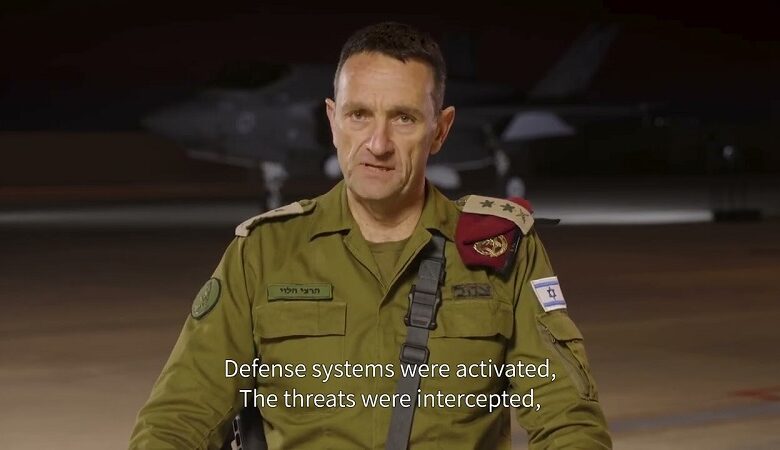“Operation Iron Shield”: Israel’s Response to Iran’s Military Assault
While Israel received backing from Western countries, which condemned Iran's actions, there were calls for restraint.

Israel’s Defense Forces (IDF) made a significant announcement on Monday, officially naming their successful interception operation against drones and missiles launched by Iran as “Operation Iron Shield.” The IDF took to social media platform X to share this information with the public.
The operation, dubbed “Iron Shield,” was launched in response to an unprecedented military assault by Iran directly targeting Israel. The Iranian attack, which marked Tehran’s first direct military retaliation against Israel, was in response to an earlier incident on April 1 involving the Iranian consulate in Damascus, Syria. Iran blamed Israel for the attack on the consulate and launched drones and missiles in retaliation.
The IDF reported that the Iranian assault consisted of a significant number of drones and missiles, including 170 drones and 150 missiles (30 cruise missiles and 120 ballistic missiles). However, the IDF claimed an impressive interception rate, stating that 99% of the incoming drones and missiles were successfully intercepted by Israel’s air defenses and fighter jets. This feat was achieved through coordinated efforts with Israel’s United States-led coalition allies.
While Israel received backing from Western countries, which condemned Iran’s actions, there were calls for restraint. Despite the provocation, Western powers cautioned Israel against escalating the conflict further, given the ongoing tensions in the Middle East, particularly between Israel and Hamas.
In response to the situation, Iran issued a warning of a “strong response” to any potential military actions taken by Israel. This heightened rhetoric underscores the volatile nature of the situation and the potential for further escalation between the two adversaries.
Overall, “Operation Iron Shield” represents Israel’s proactive measures to defend against external threats and safeguard its security interests. However, the situation remains precarious, with the risk of further hostilities looming as tensions persist between Israel and Iran.






